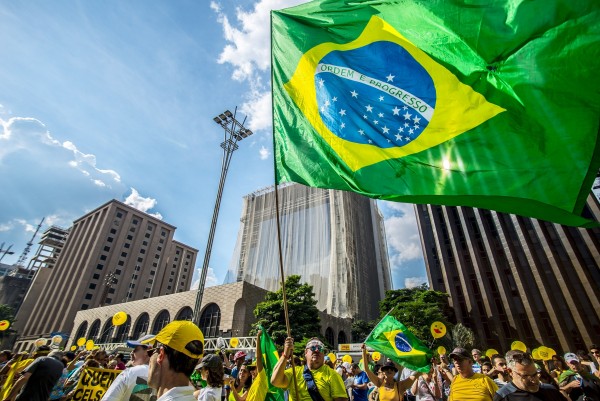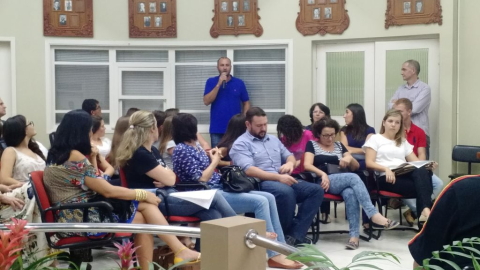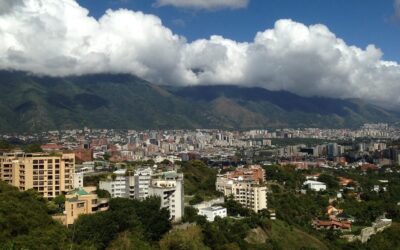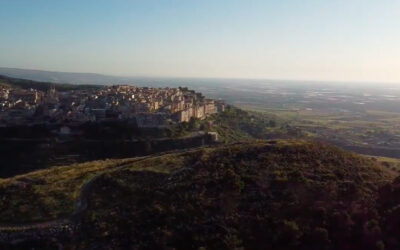 With 367 ayes and 137 nays, the Brazilian deputies approved the opening of the impeachment procedure against President Dilma Rousseff, while other 200 million greatly divided Brazilians, anxiously awaited the outcome of the voting session. It is now the Senate’s turn to confirm or not the implementation the indictment of the President. Should it be favourable, the vote of 11 May will suspend the President from her mandate for 6 months, while awaiting for the final verdict. The Brazilian constitution provides, in this case and for this length of time, that the Vice-President will assume the office. The Brazilian bishops in an official declaration dated 13 April, aired their opinions “in the face of the profound ethical, political, economic and institutional crisis” which is besetting the country with “unprecedented scandals of corruption,” involving businessmen, politicians, public officers in scheme which, besides being immoral and criminal, will be paid dearly”– the bishops said – especially by the poor. On focusing attention on the impeachment, they affirmed that they were “closely following this procedure” in the hope that everything would be done “in compliance with judicial system of the democratic rule of law. They furthermore underlined that “the good of the Nation demands that all parties overcome their personal interest, that of parties and groups” so that “the polarisation of ideological positions in a highly emotive atmosphere, would lead to the loss of the objectives and bring division and violence that menace social peace.” They asked the “Brazilian people to preserve the values of democratic co-existence, respect of one another, tolerance and healthy pluralism, and promote a peaceful political debate.” They concluded by affirming their belief “in dialogue, in the wisdom of the Brazilian people and the discernment of the authorities in seeking the strategies that can guarantee the solution to the actual crisis and the preservation of peace in our country.”
With 367 ayes and 137 nays, the Brazilian deputies approved the opening of the impeachment procedure against President Dilma Rousseff, while other 200 million greatly divided Brazilians, anxiously awaited the outcome of the voting session. It is now the Senate’s turn to confirm or not the implementation the indictment of the President. Should it be favourable, the vote of 11 May will suspend the President from her mandate for 6 months, while awaiting for the final verdict. The Brazilian constitution provides, in this case and for this length of time, that the Vice-President will assume the office. The Brazilian bishops in an official declaration dated 13 April, aired their opinions “in the face of the profound ethical, political, economic and institutional crisis” which is besetting the country with “unprecedented scandals of corruption,” involving businessmen, politicians, public officers in scheme which, besides being immoral and criminal, will be paid dearly”– the bishops said – especially by the poor. On focusing attention on the impeachment, they affirmed that they were “closely following this procedure” in the hope that everything would be done “in compliance with judicial system of the democratic rule of law. They furthermore underlined that “the good of the Nation demands that all parties overcome their personal interest, that of parties and groups” so that “the polarisation of ideological positions in a highly emotive atmosphere, would lead to the loss of the objectives and bring division and violence that menace social peace.” They asked the “Brazilian people to preserve the values of democratic co-existence, respect of one another, tolerance and healthy pluralism, and promote a peaceful political debate.” They concluded by affirming their belief “in dialogue, in the wisdom of the Brazilian people and the discernment of the authorities in seeking the strategies that can guarantee the solution to the actual crisis and the preservation of peace in our country.”  The Political Movement for the unity of Brazil (MPPU) – association for political confrontation which draws inspiration from the ideals of fraternity typical of the spirituality of the Focolare – affirmed through its President, Sergio Previdi “its conviction in the force of dialogue that is free from prejudices.” Previdi moreover invited the citizens to “call up inclusive dialogue” because “in exercising democracy together we can put into practice the necessary actions for the good of all.” “A lot can still be done – they said – if we put into practice the culture of fraternity, overcoming party politics positively in the daily political life of the country.” For the MMPU of Brazil the main concern in this delicate moment is that of not “scattering our forces and allowing ideological and party differences to divide us,” but of “acknowledging our differences so as to deepen dialogue.” And above all “making the effort to gather information from various sources, in order to get closer to the truth.” The numerous members of the Focolare Movement in Brazil, in line with the Brazilian Episcopal Conference, undertakes to offer what they consider “the main contribution we can give in this difficult moment: the declaration and testimony of fraternity lived – the core of the spirituality of unity that inspires us all. ”
The Political Movement for the unity of Brazil (MPPU) – association for political confrontation which draws inspiration from the ideals of fraternity typical of the spirituality of the Focolare – affirmed through its President, Sergio Previdi “its conviction in the force of dialogue that is free from prejudices.” Previdi moreover invited the citizens to “call up inclusive dialogue” because “in exercising democracy together we can put into practice the necessary actions for the good of all.” “A lot can still be done – they said – if we put into practice the culture of fraternity, overcoming party politics positively in the daily political life of the country.” For the MMPU of Brazil the main concern in this delicate moment is that of not “scattering our forces and allowing ideological and party differences to divide us,” but of “acknowledging our differences so as to deepen dialogue.” And above all “making the effort to gather information from various sources, in order to get closer to the truth.” The numerous members of the Focolare Movement in Brazil, in line with the Brazilian Episcopal Conference, undertakes to offer what they consider “the main contribution we can give in this difficult moment: the declaration and testimony of fraternity lived – the core of the spirituality of unity that inspires us all. ”
Communicate Joy!
Communicate Joy!




0 Comments